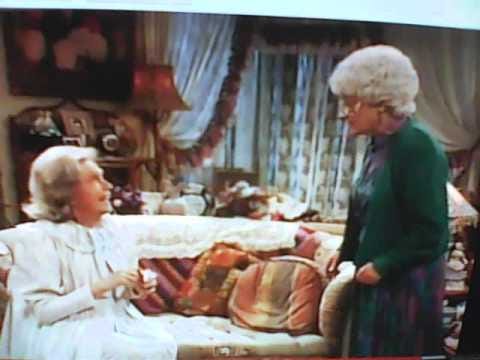Rage & Softness is reader-supported! Thank you to the folks who pay monthly to support my work. If you want to upgrade to paid, go here.
Add your favorite song to the newsletter Playlist!
Please “heart” or share my writing with your community and comrades! Forward this email to a friend, put it in your own newsletter, screenshot and share it on social media.
If you would like to pay for a subscription, but don’t want to do so through Substack, you can pay via my Venmo or PayPal. Also, if you’d like a paid subscription, but can’t afford it, please email me and I’ll add you—no questions asked.
Content Note: death, sexual assault, violence
On a first date, I brought a man home and let him choke me. I think about this now and shudder. On another first date, I went to a guy’s apartment and we fucked—except, I didn’t want to, but I didn’t know how to get him off of me. It felt easier (and more autonomous to me) to just let him do what he wanted until he finished. These, plus the four times I was raped by C, A, M, and J brought me little deaths.
I haven’t had any “near death” experiences in the medical sense, but I’ve had countless experiences where my body was not mine and I didn’t know what would happen to it.
In these moments, I wouldn’t feel afraid—just frozen. I wouldn’t think—just feel. My brain would go offline. It didn’t feel so bad in the moment.
I was never consciously afraid to die—until I started thinking about death when I would feel happy. The juxtaposition of this freaked me out and kept me wanting to stave death away—anything to keep the twinkle-light warmth of a good feeling or moment.
In my adult years—specifically my 30s—I have become more afraid of living than dying. I had a doctor once ask me: “So, what are you anxious about?” I responded: “I dunno… living, dying, and everything in-between.” He laughed, but I was serious. I feel less afraid of death these days, though. Possibly because when my mental health is suffering, being here, in this world, in this way, is not enjoyable. It’s not peaceful. But then I think of this line from a “Golden Girls” episode. In it, Sophia’s friend Martha asks Sophia to be there when she kills herself. Martha can no longer stand the pain of of life. Sophia emphatically says, “We’re not in this life for peace!” That line has always stuck with me. It’s true, and also sometimes people can’t or shouldn’t hang on. For myself, it’s an important reminder that life is so much more textured than the goal of “happiness” or “peace.” Life and living are about experiences—good, bad, neutral.
It’s also a reminder that death… happens. We don’t always have control over it and it is the thing that every person must go through.
I don’t believe in heaven or hell or any religious connotations of what happens after we die. I do believe, whether we have a conscience or not, that we are relaxed and supported. When I have witnessed loved ones dying, I see a surrender that I don’t see in those of us who aren’t in the midst of dying. Obviously, the act of dying is not always gentle or peaceful—but eventually it’s over—it stops. There is an end. Death is the ultimate end. The death of a loved one is harder for those of us still living.
Khalil Gibran says of Joy and Sorrow:
The deeper that sorrow carves into your being, the more joy you can contain… Some of you say, “Joy is greater than sorrow,” and others say, “Nay, sorrow is the greater.” But I say unto you, they are inseparable.
This is how I think about death and life. They are inseparable.
Gibran continues:
Together they come, and when one sits alone with you at your board, remember that the other is asleep upon your bed.
Joy and Sorrow, Death and life are constants. Befriending them seems more pleasurable than fearing or ignoring them.
I’ve become more interested in death and dying for a while now and a few years ago, I flirted with the idea of becoming a Death Doula. Last week, I finally took the plunge and applied to a program I’ve heard excellent things about: Going With Grace. The org:
is a death doula training and end-of-life planning organization that exists to support people as they answer the question, “What must I do to be at peace with myself so that I may live presently and die gracefully?” We work to improve and redefine the end-of-life experience for people rooted in every community using the individual lived experience as the foundation.
The founder, Alua Arthur gave an excellent TED Talk in 2023:
I received an email this week saying I was accepted into the death doula training program! I’m trying to raise funds so that I can do it (it’s $1470—even if I can raise half of that, it will help a lot!). Thus, if you’ve learned anything from me over the years or would like to send me an early b-day present, please consider contributing to my fund! I have Venmo and PayPal.
Here’s to death and life and everything in between!
The Spirituality of Perimenopause -
How library workers can provide community support during a Trump presidency - LibraryPunk
Prisons, Prose & Protest - #22 -
The Power of the People Heals - Kelly Hayes
South Koreans Prove Democracy Can Survive in the Face of Authoritarianism - Christine Ahn
The heavy burden universities place on Muslim women students - Elias Guerra
Really into this song by Daffo:








Wow ...Doing something like that takes a lot of strength and conviction....I pretty sure I couldn't do it.....you never cease to amaze me....
Yup. Been there, my body remembers the bruises. part of the price of admission I have always thought.